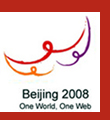Refereed Papers
Track: Search: Ranking and Retrieval Enhancement
Paper Title:
Learning to Rank Relational Objects and Its Application to Web Search
Authors:
- Tao Qin(Tsinghua University)
- Tie-Yan Liu(Microsoft Research Asia)
- Xu-Dong Zhang(Tsinghua University)
- De-Sheng Wang(Tsinghua University)
- Wen-Ying Xiong(Peking University)
- Hang Li(Microsoft Research Asia)
Abstract:
Learning to rank is a new statistical learning technology on creating a ranking model for sorting objects. The technology has been successfully applied to web search, and is becoming one of the key machineries for building search engines. Existing approaches to learning to rank, however, did not consider the cases in which there exists relationship between the objects to be ranked, despite of the fact that such situations are very common in practice. For example, in web search, given a query certain relationships usually exist among the the retrieved documents, e.g., URL hierarchy, similarity, etc., and sometimes it is necessary to utilize the information in ranking of the documents. This paper addresses the issue and formulates it as a novel learning problem, referred to as, 'learning to rank relational objects'. In the new learning task, the ranking model is defined as a function of not only the contents (features) of objects but also the relations between objects. The paper further focuses on one setting of the learning problem in which the way of using relation information is predetermined. It formalizes the learning task as an optimization problem in the setting. The paper then proposes a new method to perform the optimization task, particularly an implementation based on SVM. Experimental results show that the proposed method outperforms the baseline methods for two ranking tasks (Pseudo Relevance Feedback and Topic Distillation) in web search, indicating that the proposed method can indeed make effective use of relation information and content information in ranking.
Inquiries can be sent to:


.jpg)











